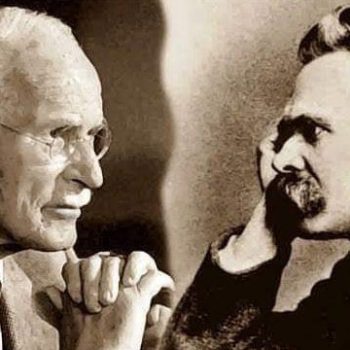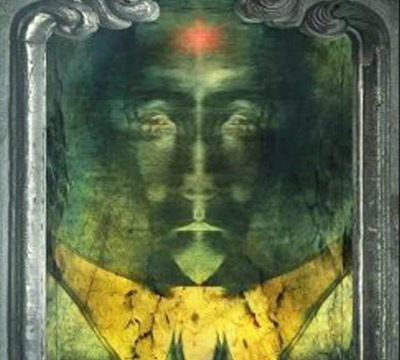
Carl Jung acreditava que o indivíduo totalmente desenvolvido – mesmo “iluminado” – era um indivíduo perigoso. Seu argumento era que, sem integrar totalmente nossa sombra em nosso próprio ser, corríamos o risco de ser uma marionete de nossos impulsos mais sombrios. Isso não apenas nos tornou perigosos por nossa ignorância de tal risco, mas nos deixou abertos à manipulação por indivíduos enganadores e tirânicos que apelaram para esses mesmos impulsos sombrios dentro de nós. A exploração pelas pessoas no poder da mentalidade da turba e as distinções “nós e eles” são exemplos disso.
“Ninguém se torna iluminado por imagens de figuras de luz, mas tornando a escuridão consciente” – Carl Jung
A observação de Friedrich Nietzsche foi que a covardia era frequentemente confundida com moralidade. Não é que a pessoa ‘boa’ opte por não cometer atos de maldade, mas ela é incapaz de fazê-lo. O indivíduo como um todo era a pessoa que tinha a capacidade de quebrar as regras quando necessário, defender a si mesma e por aquilo em que acreditava e enfrentar atos imorais quando eles ocorressem. No entanto, isso só poderia ser alcançado pelo indivíduo a quem eles próprios projetam uma sombra. Se não tivermos a capacidade de nos defendermos, corremos o risco de ser vítimas da patologia da multidão ou de outras pessoas.
Quando paramos para pensar sobre isso, faz todo o sentido. As pessoas que mais respeitamos quase sempre têm um elemento em sua presença que significa que não iremos cruzar com elas ou tentar enganá-las porque sabemos que haverá repercussões se o fizermos. Quando pensamos na figura mitológica do “Herói” – evidente em todos os nossos filmes de super-heróis – eles sempre têm uma capacidade subjacente de destruição que pode ser desencadeada a qualquer momento, o que induz o medo em seu inimigo. Jung disse que a “assimilação da sombra dá corpo ao homem, por assim dizer”.
[fonte] de Proceed with Caution: Exploring the Human Psyche (Jung & Nietzsche), de Brian Cronin.
(Imagem) Carl Jung & Friedrich Nietzsche: Dois grandes pensadores dos séculos 19 e 20
***************************************
Carl Jung believed that the fully developed — even “enlightened” — individual was a dangerous individual. His contention was that without fully integrating our shadow into our very being, we risked being a puppet to our darker impulses. Not only did this make us dangerous through our ignorance of such a risk, but it left us open to manipulation by deceitful and tyrannical individuals who appealed to those very same dark impulses deep inside of us. The exploitation by people in power of the mob mentality and “us and them” distinctions are examples of this.
“One does not become enlightened by imaging figures of light, but by making the darkness conscious” — Carl Jung
Friedrich Nietzsche’s observation was that cowardice was often mistaken for morality. It is not that the ‘good’ person chooses not to commit acts of evil, but that they are incapable of doing so. The whole individual was the person who had the capacity to break the rules when necessary, stand up for themselves and for what they believed in, and to confront immoral acts when they occurred. Yet this could only be achieved by the individual who they themselves cast a shadow. If we do not have the capacity to stand up for ourselves, then we risk falling victim to the pathology of the crowd or to other individuals.
When we stop to think about it, it makes perfect sense. The people we respect the most almost always have an element to their presence that means that we will not cross them or try to cheat them because we know that there will be repercussions if we were to do so. When we think of the mythological ‘Hero’ figure — evident in all of our superhero movies — they always have an underlying capacity for destruction that can be unleashed at any moment which induces fear into their nemesis. Jung said that the “assimilation of the shadow gives a man body, so to speak”.
[source] from Brian Cronin’s Proceed with Caution: Exploring the Human Psyche (Jung & Nietzsche).
(Image) Carl Jung & Friedrich Nietzsche: Two truly great thinkers of the 19th and 20th century.

Desenvolvido por DGRAFO.com